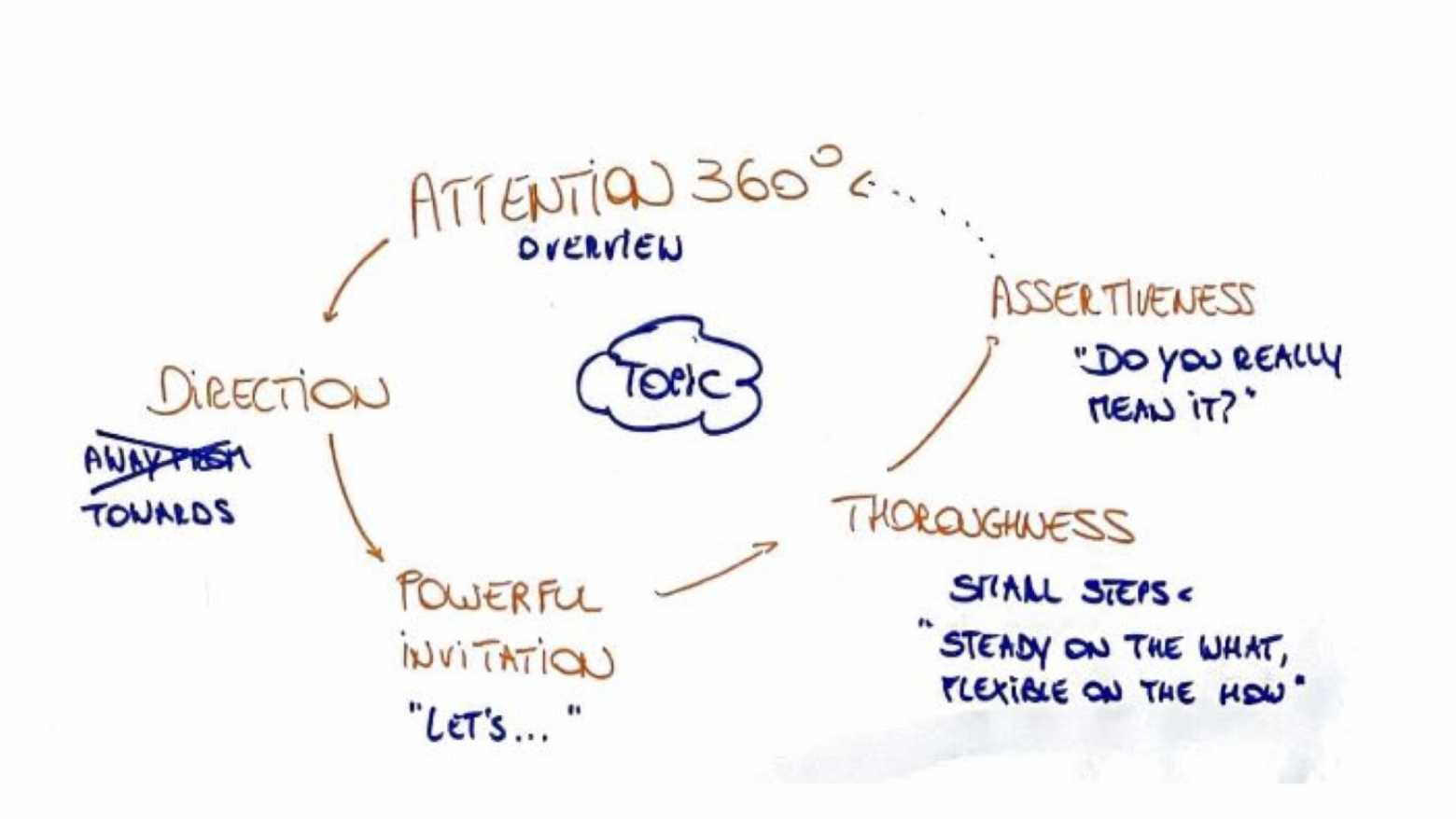The Power of 5 - A Solution Focus Tool
to foster reflection and enhance communication in the light of sustainability
Aug 29, 2024
Synopsis
The game, ‘The Power of 5’ consists of a playground and reflection questions. We have based it on working interactions in nature, more specifically on five core elements of natural horse behaviour and how they can help human interactions become more sustainable on the different levels of interaction:
- Intrapersonal (interaction within team ‘Me, Myself & I’)
- Interpersonal (interaction between individuals)
- Intragroup (interaction within teams, associations, groups, …)
- Intergroup (interaction between teams, associations, groups, …)
Using “The Power of 5” tool within networks and ecosystems can significantly contribute to creating more sustainable organisations and societies. Let’s explore how we can apply each of the core elements within this context: Keep Your Attention 360 Degrees:

Awareness of various options and opportunities within networks and ecosystems is crucial for making informed decisions. This awareness can involve considering the diverse perspectives and resources within the network or ecosystem and actively seeking novel solutions to sustainability challenges.
Choose a Direction:
Instead of reacting to problems or moving away from undesirable outcomes, organisations and societies can benefit from adopting a proactive approach focused on moving towards positive goals and outcomes. By setting clear sustainability objectives and taking intentional steps towards achieving them, networks and ecosystems can drive meaningful change.
Powerfully Invite:
Effective communication and collaboration are essential for fostering sustainable interactions within networks and ecosystems. By embracing a mindset of empowerment and inclusion, organisations and societies can create an environment where individuals feel valued and motivated to contribute towards shared sustainability goals.
Act with Thoroughness:
Sustainable change often requires a systematic and thorough approach that acknowledges the complexity of ecological and social systems. By taking small, incremental steps grounded in reality and responsive to feedback, organisations and societies can avoid the pitfalls of inaction and the risks of hasty decision-making.
Genuine Assertiveness:
Overcoming obstacles and challenges is inherent in pursuing sustainability within networks and ecosystems. By viewing obstacles as opportunities for learning and growth, individuals and groups can cultivate resilience and persistence in adversity. Embracing a mindset of curiosity and openness can also foster innovation and creativity in finding solutions to sustainability challenges.
Conclusion
The ‘Power of 5’ tool, developed from horse behaviour, directly responds to the challenges organisations and societies face in navigating sustainability’s complexities. By promoting mindful attention, proactive decision-making, effective communication, systematic action, and resilient problem-solving, it addresses the needs and interests of our audience.
By embracing these core elements, networks and ecosystems can create a more sustainable future for all stakeholders.
